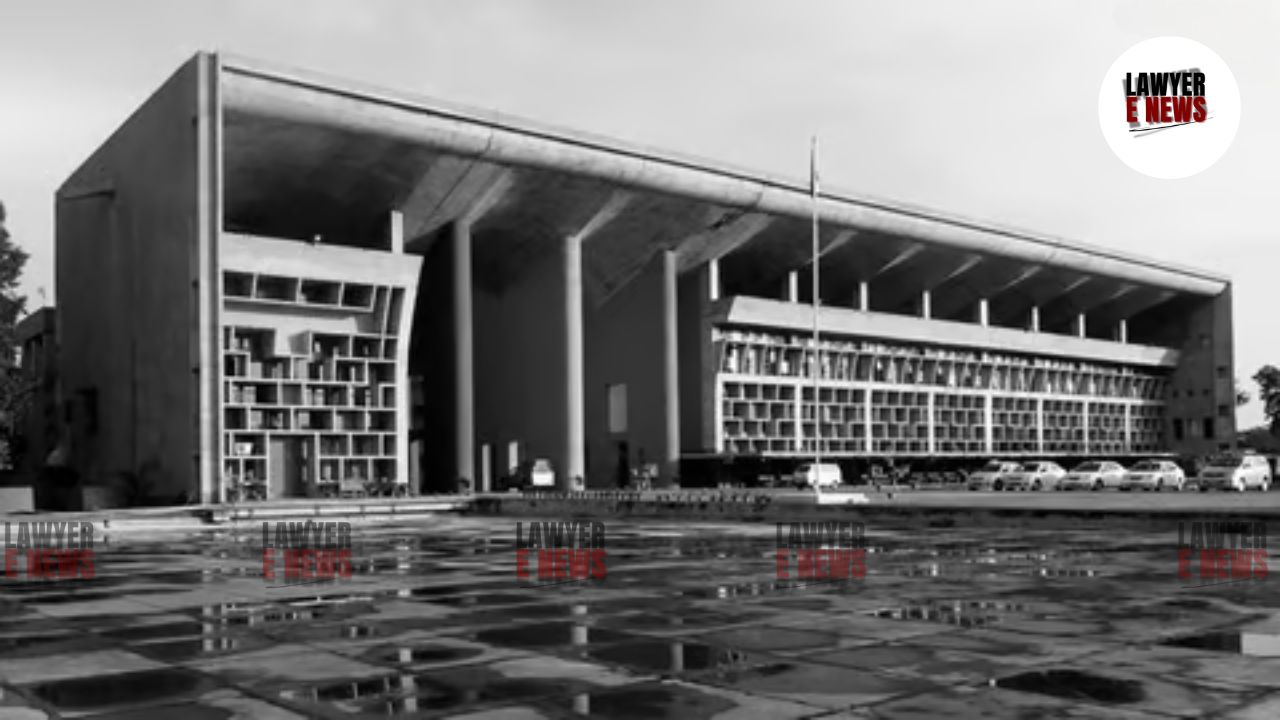-
by Admin
15 February 2026 5:01 PM



Civil Consequences Demand Compliance with Principles of Natural Justice - Punjab and Haryana High Court quashing a notification dated April 25, 2023, which extended the municipal limits of Kalanwali to include Gram Sabha areas. The court held that the notification violated statutory provisions under Section 4(2) of the Haryana Municipal Act, 1973, as well as fundamental principles of natural justice. It observed that transitions affecting Gram Sabha areas entailed significant civil consequences and necessitated a personal hearing for objectors. The court further found the notification to be unconstitutional for curtailing the five-year tenure of the Gram Panchayat under Article 243E of the Constitution.
Justice Sureshwar Thakur, writing for the division bench, stated, “Inclusion of Gram Sabha areas in municipal limits results in significant civil consequences, including taxation and a shift from an agrarian to an urban way of life. In such cases, adherence to the principles of natural justice is mandatory, even in the absence of an explicit statutory requirement.”
The dispute arose from a notification issued on April 25, 2023, by the State of Haryana, which expanded the municipal limits of Kalanwali, a town in Sirsa district, to include Gram Sabha areas. The petitioners, including the Gram Panchayat Kalanwali, objected to this move, citing statutory violations, arbitrary decision-making, and the lack of adherence to the principles of natural justice. They contended that the notification was issued without considering their objections and without granting them a personal hearing, as mandated by Section 4(2) of the Haryana Municipal Act, 1973.
The petitioners also highlighted a resolution passed by the Gram Panchayat on February 21, 2023, opposing the inclusion. They argued that the transition would curtail the Panchayat’s constitutionally guaranteed five-year tenure, impose additional taxes, and disrupt the agrarian character of the village.
The State defended its action, asserting that the inclusion was a policy decision based on recommendations and that the principles of natural justice did not apply to legislative actions like altering municipal limits. It relied on the judgments in State of Punjab v. Tehal Singh (AIR 2002 SC 533) and Rameshchandra Kachardas Porwal v. State of Maharashtra ((1981) 2 SCC 722) to argue that personal hearings were unnecessary in such cases.
The court examined whether the notification complied with Section 4(2) of the Haryana Municipal Act, which requires the State Government to consider objections from affected residents before including any area in municipal limits. The court observed that while the statute does not explicitly mandate a personal hearing, the phrase “the State Government shall take such objection into consideration” implies an obligation to evaluate objections in a reasoned manner.
Relying on the Supreme Court’s judgment in Baldev Singh v. State of Himachal Pradesh (AIR 1987 SC 1239), the court emphasized, “Where administrative actions entail civil consequences, the principles of natural justice must be read into the statutory scheme unless explicitly excluded. The absence of personal hearings to objectors vitiates the decision-making process.”
The court found that the authorities had ignored detailed objections raised by the Gram Panchayat and residents, including concerns about increased taxation, loss of benefits under rural development schemes like MNREGA, and the disruption of their agrarian way of life.
The petitioners argued that the notification curtailed the constitutionally mandated five-year tenure of the Gram Panchayat, elected in November 2022, in violation of Article 243E of the Constitution. The court agreed, noting that the inclusion of Gram Sabha areas in municipal limits would effectively dissolve the Panchayat before the expiry of its term.
The court observed, “Article 243E ensures that Panchayats continue for a full five-year term unless dissolved under specific circumstances. The inclusion of Gram Sabha areas into municipal limits undermines this constitutional guarantee and violates the democratic rights of the villagers.”
The State relied on Tehal Singh and Rameshchandra Porwal to argue that personal hearings were not required in cases involving municipal boundary alterations. However, the court distinguished these rulings, noting that they dealt with intra-Gram Sabha boundary changes and administrative market relocations, respectively, neither of which involved civil consequences as severe as the instant case.
In contrast, the court found the decision in Baldev Singh more applicable. It observed that the inclusion of Gram Sabha areas in municipal limits involves significant changes in governance, taxation, and the socio-economic framework, necessitating adherence to principles of natural justice.
The court quashed the impugned notification dated April 25, 2023, for non-compliance with statutory provisions, violation of Article 243E, and failure to adhere to the principles of natural justice. It granted the State liberty to issue a fresh notification after:
Constituting a statutory committee as per the guidelines in Annexure P-12.
Granting personal hearings to all objectors, including the Gram Panchayat.
Recording a detailed, reasoned decision on objections.
The court directed the State to complete this process within four months.
Observations on Governance
The court expressed concerns about the arbitrary nature of the notification and emphasized the need for transparency and fairness in decisions affecting rural governance. It noted that the transition from Gram Sabha to municipal governance entails significant socio-economic changes, including increased taxes, loss of rural employment schemes, and altered land-use policies.
It observed, “Democratic governance at the grassroots level is the bedrock of our constitutional framework. Any action that curtails the autonomy or tenure of Panchayats must withstand the highest standards of fairness and legality.”
This judgment reinforces the importance of adhering to statutory mandates and principles of natural justice in administrative actions with far-reaching civil consequences. It underscores the constitutional guarantee of Panchayati Raj institutions’ five-year tenure and limits arbitrary expansions of municipal boundaries that disrupt rural governance.
Date of Decision: December 3, 2024
